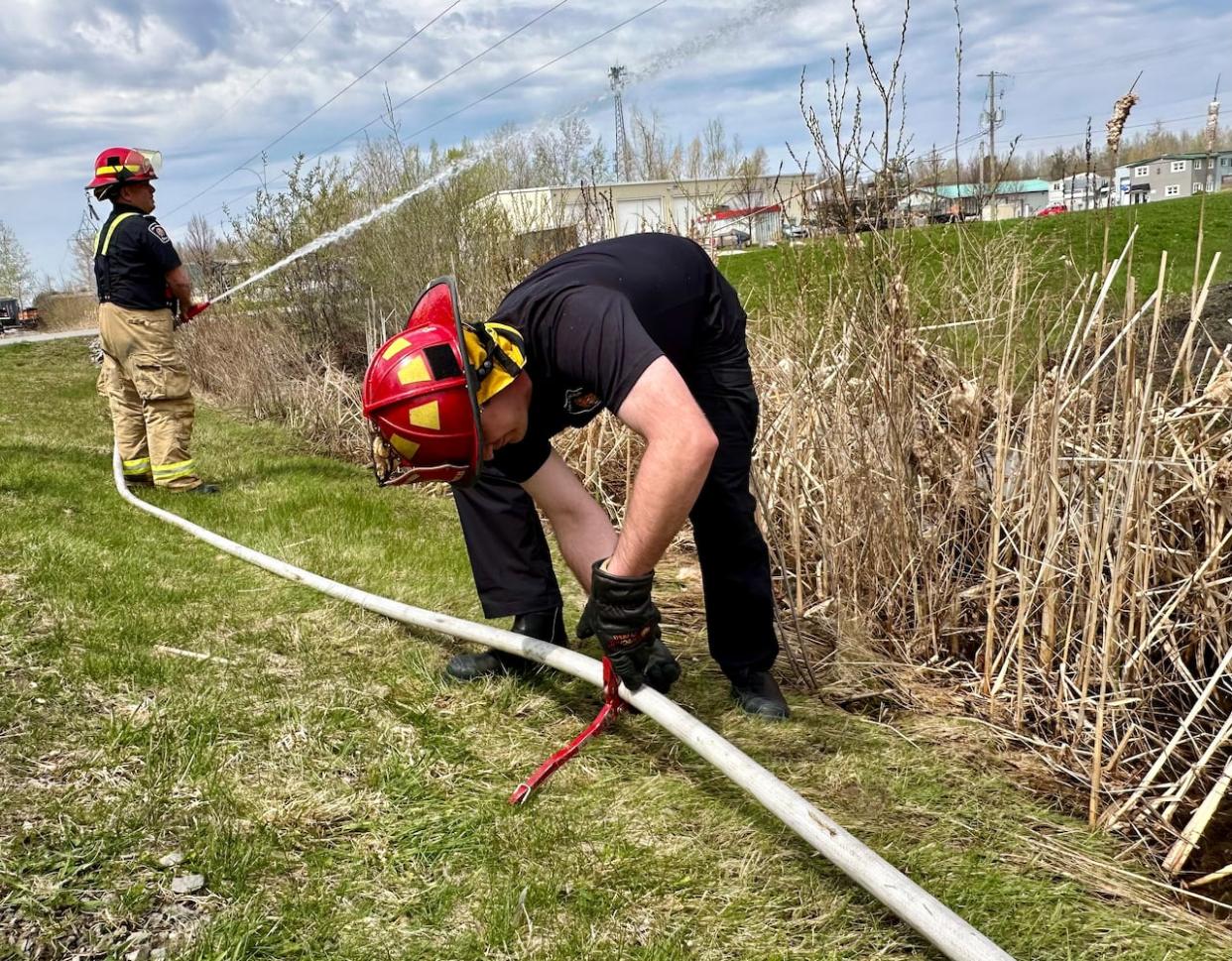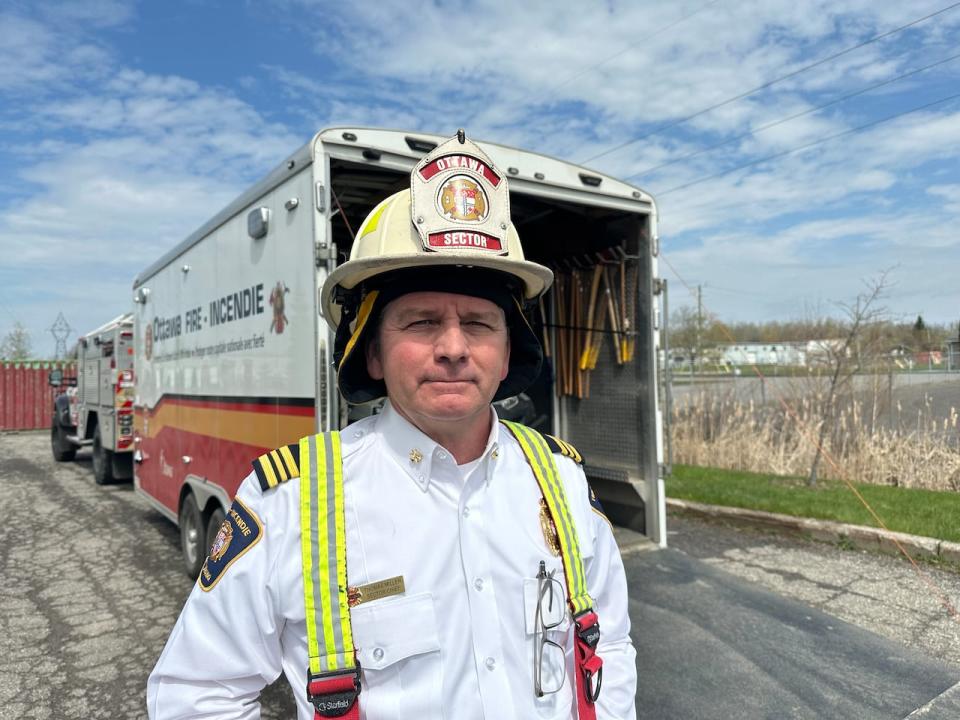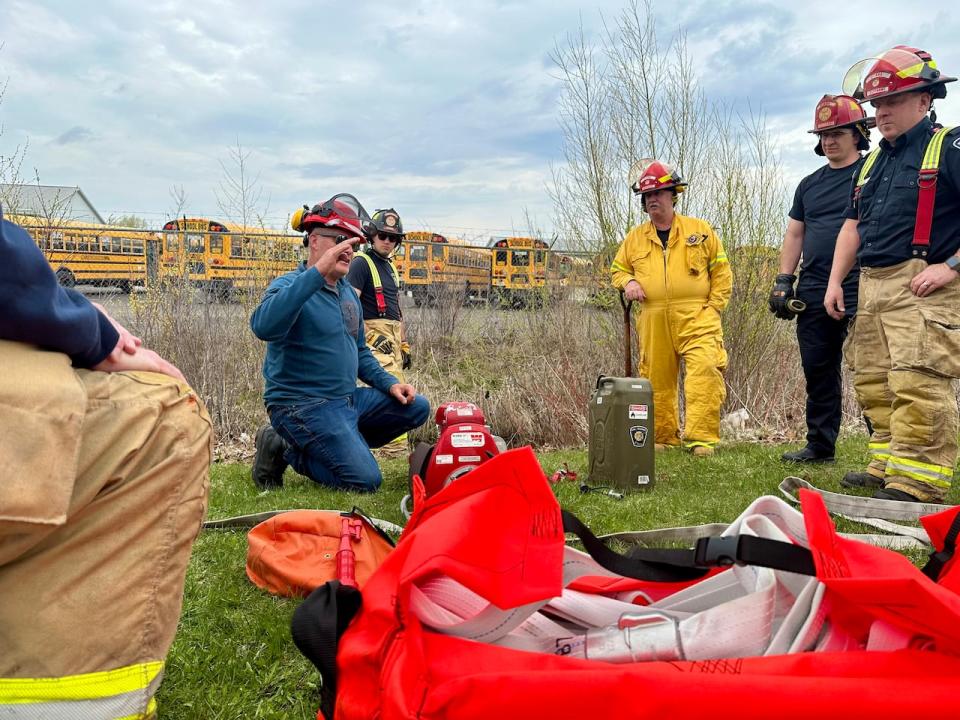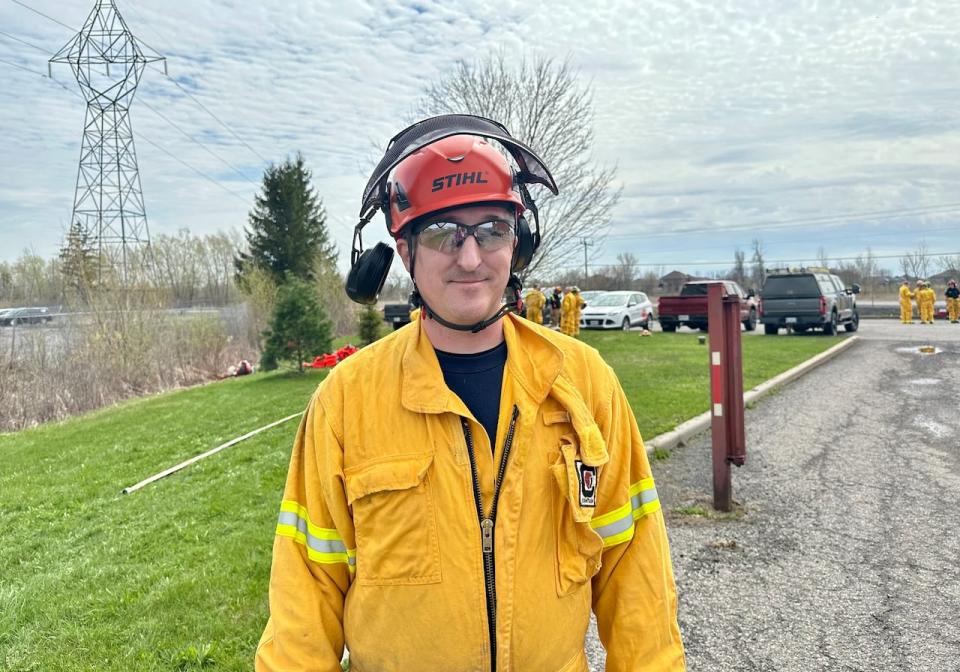Ottawa fire fighters get specialized urban wildfire training

Twenty-five members of Ottawa's wildland firefighting crews have completed a special training program that certifies them to fight forest fires in an urban setting.
The crews were already doing that work, but this weekend's training has brought them up to the standard set by Ontario's Ministry of Natural Resources and Forestry (MNR).
It's part of a provincial mandate to have all firefighters properly certified for the fires they're tasked with fighting.
The course focused on a scenario that firefighters in Ottawa would more regularly deal with: the "urban interface," a situation where combustible forests and grasslands are close to urban developments.
Tackling an urban interface fire is typically a less intensive undertaking than fighting an out-of-control forest fire, which can require crews to camp remotely for weeks at a time, said Ottawa Fire Services rural sector chief Tom Miller.
"Most of our fires are 'day fires,' [as] we call them. We're in and out in a day," Miller said on Sunday.
"So this type of training that we're receiving today makes us more proficient at that type of firefighting."

Rural sector chief Tom Miller says the training will help make crews more efficient when a real wildfire happens. (Natalia Goodwin/CBC )
Firefighters learned skills this weekend like how to pump water out of a natural source, as well as new hose and nozzle techniques that would make them more efficient when time is of the essence.
Miller said it's vital for crews to have the "latest in ministry standards" when it comes to fire suppression techniques.
"It's important to have all this for early intervention …because grass fires can [spread] into residential areas and that's where we don't want the fires."
After an abnormally dry winter, Ottawa's firefighters got an early and busy start to the wildfire season, fighting multiple grass fires in the month of March, which led to a fire ban.
Miller said with the rain Ottawa has received in April, the situation is better.
But there's still a lot of fuel for fire in the region's forests, thanks to large wind and ice storms in recent years that downed many trees.
And after a record-setting wildfire season in Canada last year, members are happy to be getting more training.

Instructor Colin Braney, left, teaches a group of fire fighters how to pump water from a natural source. (Natalia Goodwin/CBC )
'More severe weather'
"We are seeing more severe weather, more dynamic weather events, more dynamic situations," said Kris Haynes, lieutenant at Station 63.
"It's better to be over-prepared, over-trained ... for the situations we'll face, just in the event that there is something that's larger than typical or larger than we've seen in Ottawa the last 10, 20 years."
Being certified will also allow crews from Ottawa to be deployed to other places where forest fires are posing threats.

Kris Haynes, a lieutenant at Station 63 says it feels good to know that the weekend's training will allow them to be deployed to other communities in need. (Natalia Goodwin/CBC )
"That feels great, like, to have the same level of training as other departments who have those interoperability agreements with the MNR," Haynes said.
"It feels good to understand that not only will we be more effective in the city here, but [we'll] also be able to help our neighbours if they ever have that need."
The plan is for the 25 firefighters who got the training this weekend to now bring their knowledge back to their home stations and teach it to their colleagues.

